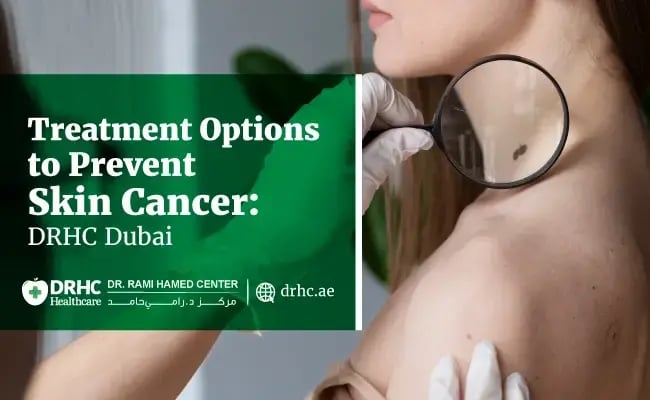
Skin cancer is one of the most common—and preventable—forms of cancer worldwide. In Dubai’s sunny climate, where sun exposure is an everyday reality, protecting your skin becomes especially important. The good news is that with the right preventive care and early treatment, skin cancer can often be avoided altogether.
At Dr. Rami Hamed Center (DRHC) in Dubai, our dermatology team focuses not only on treating existing skin conditions but also on helping patients prevent serious issues like skin cancer through education, early detection, and modern treatment approaches.
Understanding Skin Cancer and Its Causes
Skin cancer develops when skin cells grow uncontrollably, often due to damage caused by ultraviolet (UV) radiation from the sun or tanning beds. This damage accumulates over time, increasing the risk of both non-melanoma skin cancers (such as basal cell carcinoma and squamous cell carcinoma) and melanoma, which is more aggressive.
Other risk factors include:
- Fair or sensitive skin that burns easily
- A family history of skin cancer
- A weakened immune system
- Frequent sunburns or outdoor exposure
- Presence of many moles or unusual skin growths
While these risks can sound concerning, the key message is simple: early intervention saves lives. Regular skin checks and timely treatments are highly effective at preventing cancer from developing or spreading.
Preventive Skin Cancer Treatments at DRHC Dubai
At DRHC Dubai, our dermatologists offer several treatment and preventive options tailored to each patient’s needs. These treatments focus on removing precancerous cells, repairing sun-damaged skin, and reducing the risk of future malignancy.
1. Cryotherapy (Freezing Treatment)
Cryotherapy involves applying liquid nitrogen to freeze and destroy abnormal or precancerous cells—often used for actinic keratosis, a common early warning sign of skin cancer. This quick, minimally invasive procedure allows healthy skin to regrow naturally.
2. Photodynamic Therapy (PDT)
PDT uses a special light-activated solution that targets and destroys abnormal skin cells while leaving healthy tissue unharmed. It’s especially effective for treating areas exposed to chronic sun damage, such as the face, scalp, and neck.
3. Laser Therapy
Advanced laser treatments can remove damaged skin layers and stimulate the growth of healthy cells. At DRHC, we use medical-grade lasers that allow precise treatment with minimal discomfort and recovery time.
4. Topical Medications
Certain prescription creams can help eliminate precancerous cells or reduce inflammation caused by sun damage. These treatments are ideal for widespread or mild lesions that don’t require surgical removal.
5. Surgical Removal (Excision)
When a suspicious mole or lesion poses a higher risk, minor surgery may be recommended to remove it entirely. This ensures all abnormal tissue is removed and prevents the lesion from progressing into cancer.
Lifestyle & Home Care Tips to Support Skin Health
Preventive treatment works best when combined with healthy daily habits. Here are a few dermatologist-recommended steps to reduce your risk:
- Use broad-spectrum sunscreen (SPF 30 or higher) every day, even when indoors.
- Wear protective clothing—wide-brimmed hats, long sleeves, and UV-protective sunglasses.
- Avoid peak sunlight hours between 10 a.m. and 4 p.m. in Dubai.
- Avoid tanning beds or artificial UV exposure.
- Schedule yearly skin exams at DRHC Dubai for professional monitoring and early detection.
FAQs About Skin Cancer Prevention in Dubai
1. Can skin cancer be completely prevented?
While no prevention is 100% guaranteed, consistent sun protection and early treatment of precancerous lesions greatly reduce your risk.
2. How often should I get my skin checked in Dubai?
It’s recommended to schedule a professional skin examination at least once a year—or more frequently if you have a history of sun damage or skin cancer.
3. Are preventive treatments painful?
Most treatments, like cryotherapy or topical therapy, cause only mild discomfort and require little to no downtime.
4. What should I do if I notice a new or changing mole?
If a mole changes in size, color, or texture, it’s important to have it examined by a dermatologist as soon as possible.
5. Does DRHC Dubai provide mole mapping or full-body screening?
Yes. DRHC Dermatology Clinic in Dubai offers comprehensive mole mapping and skin screening services using advanced imaging and diagnostic tools.
When to Visit a Dermatologist
Don’t wait until a lesion looks suspicious. Early evaluation ensures safe, effective treatment and peace of mind. Whether you’ve noticed a new spot, persistent redness, or dry patches, it’s best to have them checked promptly by a professional.
At Dr. Rami Hamed Center (DRHC) in Dubai, our dermatologists provide comprehensive skin cancer screening and preventive treatments tailored to each individual’s skin type and risk level.
Conclusion
In a region as sunny as Dubai, skin cancer prevention begins with awareness, regular checkups, and proactive treatment. With the expertise and advanced technology available at DRHC Dubai, you can take confident steps toward protecting your skin’s health and maintaining long-term wellness.
If you’re concerned about sun damage or notice unusual skin changes, schedule your dermatology consultation at DRHC Dubai today—because early action is the best protection.
📞 Call / WhatsApp: +97142798200
📍 Visit Us: Dr Rami Hamed Center, Dubai Healthcare City
🌐 Website: www.drhc.ae
Topic: Dermatology




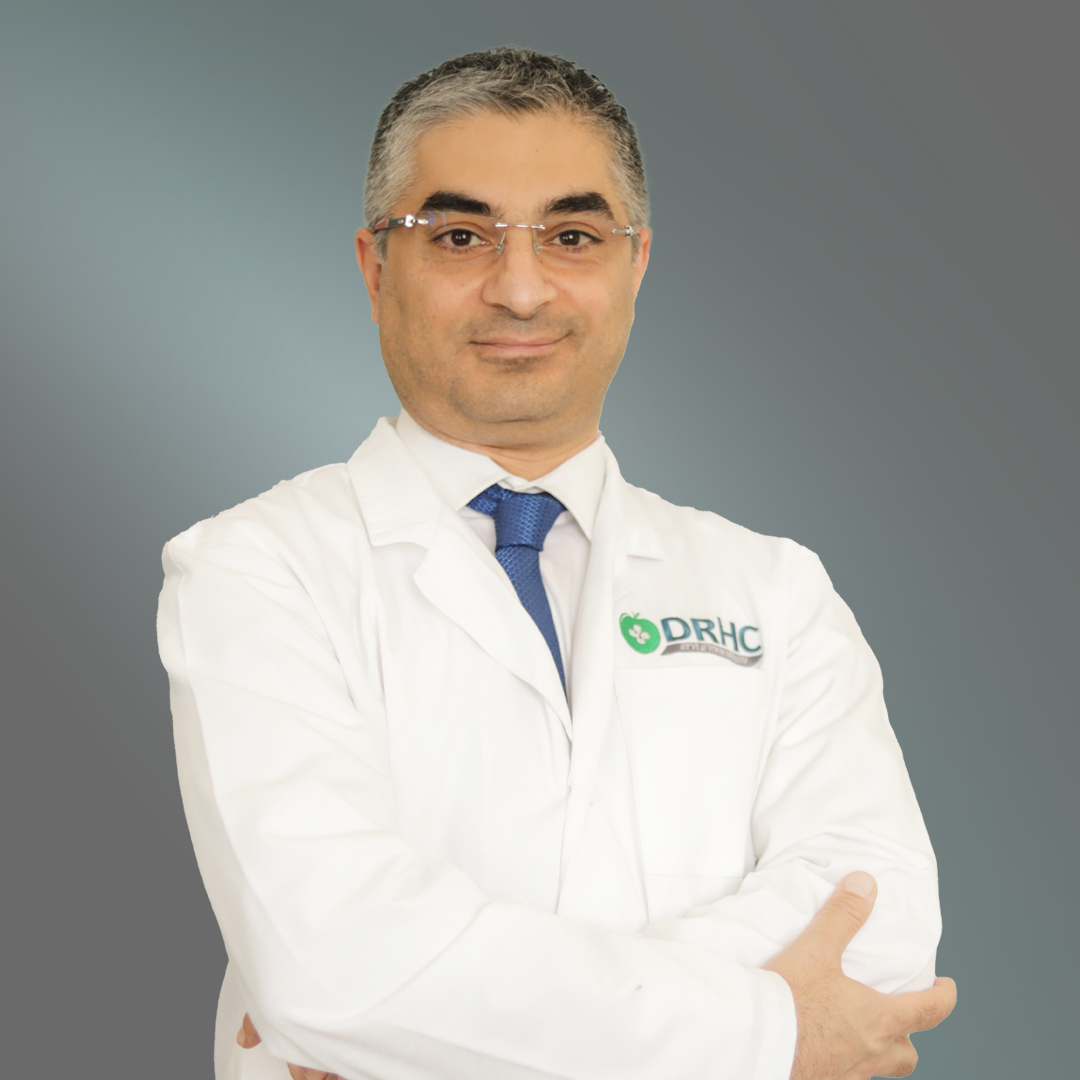
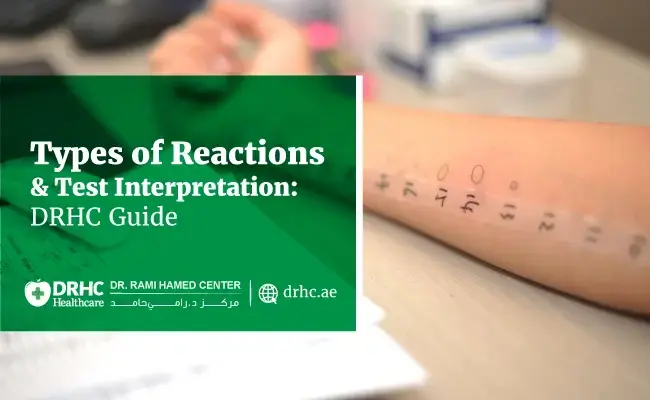
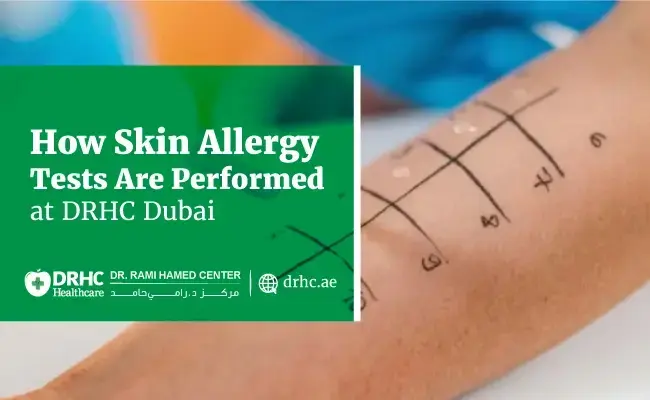
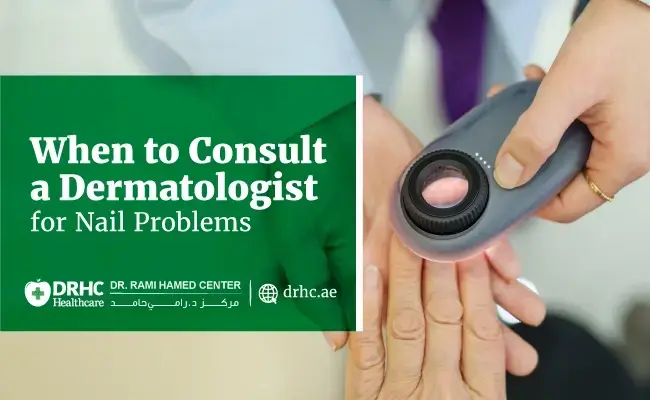

Leave a comment